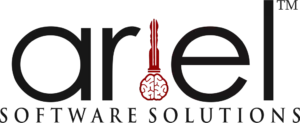
Selecting the right content management system (CMS) for your business website is a crucial decision that can have long-term effects on your web presence. With an overwhelming number of CMS options available in 2024, the challenge is understanding which platform offers the right balance of functionality, scalability, and ease of use for your specific needs. Umbraco, WordPress, and Sitefinity are three popular CMS choices, each with distinct characteristics that make them suitable for different types of businesses.
This blog provides a comparative overview of these three platforms, offering insights that can help you make an informed decision on the Best CMS for SEO 2024.
The Role of a CMS in Your Business Website
Your CMS is more than just a tool to publish content—it is the backbone of your business website. As digital technology continues to advance, your website plays a central role in connecting and communicating with your customers, stakeholders, and partners. Therefore, choosing a CMS that fits your business’s needs is crucial for maintaining an effective and scalable online presence. Whether you need a simple blog, a complex eCommerce site, or an enterprise-level platform, the right CMS can make content management easier, improve the user experience, and support your digital marketing efforts.
A well-chosen CMS allows you to manage content efficiently, integrate seamlessly with other tools, and scale your website as your business grows. However, selecting the right one depends on several factors, such as your business size, technical expertise, scalability needs, and budget. Let’s explore the key aspects of Umbraco, WordPress, and Sitefinity to understand how each might serve your needs.
The Best CMS Platforms in 2024: A Detailed Comparison
Let’s dive into a comparison of three of the Best CMS for SEO 2024—Umbraco, WordPress, and Sitefinity—focusing on their scalability, control over content management, and overall suitability for business websites.
1. Umbraco CMS: Flexibility with Control
Umbraco is an open-source, .NET-based CMS known for its flexibility and scalability. It’s designed for businesses that require customizability and control over their content management systems. Umbraco is particularly appealing to businesses working with Microsoft technologies and those with dedicated development resources.
Considerations:
- Customization Potential: If your business requires a highly tailored website with custom functionality, Umbraco offers significant flexibility. Developers can make deep customizations to both the front and back ends of the site, ensuring the CMS aligns with your unique requirements.
- Scalability for Growth: Umbraco is designed to handle larger websites, making it suitable for growing businesses that need a platform capable of supporting high traffic and complex content needs.
- Technical Expertise Required: While Umbraco offers advanced capabilities, it does require technical expertise to fully leverage its features. For businesses that lack in-house developers, the learning curve can be steep. This may lead to additional costs for development and maintenance.
- Smaller User Community: Although growing, Umbraco’s community is not as large as some other CMS platforms. This may limit your ability to find ready-made solutions or peer-to-peer support compared to more widely used platforms.
Ideal for: Businesses that need a highly flexible and customizable CMS with control over the system architecture, and who have the technical resources to support it.
2.WordPress CMS: User-Friendliness and Versatility
WordPress is the world’s most widely used CMS, powering a significant percentage of websites globally. Originally designed as a blogging platform, it has evolved into a comprehensive solution for all types of websites, including business sites, eCommerce stores, and portfolios. Its open-source nature makes it a cost-effective solution for businesses of all sizes.
Considerations:
- Ease of Use: WordPress is renowned for its simplicity and user-friendly interface. Even users with little technical expertise can set up and manage a website, making it an appealing choice for small businesses, startups, and individual entrepreneurs who need a website quickly and easily.
- Extensive Plugin Ecosystem: WordPress’s vast library of plugins makes it possible to add almost any functionality to your website, whether it’s for SEO optimization, social media integration, or advanced analytics. The WordPress SEO plugins CMS with built-in SEO tools offer a seamless integration to enhance your site’s SEO performance.
- Scalability Considerations: WordPress can handle a range of website sizes, but it may encounter challenges as your site grows in terms of traffic or complexity. Large websites with heavy traffic may require optimization and extra resources to ensure consistent performance. For businesses expecting rapid growth, scalability might require additional measures like managed hosting or custom-built solutions.
- Security Considerations: WordPress’s popularity means it is often targeted by hackers. Security vulnerabilities can emerge from outdated plugins or themes, so it is important for businesses to stay on top of regular updates and implement proper security measures.
Ideal for: Small to medium-sized businesses looking for an affordable, easy-to-use platform with vast plugin options. WordPress is best suited for businesses that need to get their website up and running quickly and without technical hassle.
3. Sitefinity CMS: Enterprise-Grade Solutions for Advanced Needs
Sitefinity is an enterprise-level CMS designed to cater to larger businesses and organizations with more complex digital needs. Known for its robust features, Sitefinity offers tools for personalization, multi-site management, and advanced marketing capabilities, making it a good fit for large businesses that need an advanced CMS with high levels of customization and integration.
Considerations:
- Enterprise Scalability: Sitefinity is built to support the needs of large businesses with high-volume websites, complex workflows, and multiple content contributors. It provides the tools necessary to scale efficiently and manage high traffic loads, making it a strong choice for enterprises with growing digital infrastructures.
- Personalization and Marketing Tools: Sitefinity excels in personalized content delivery, enabling businesses to deliver targeted experiences to different segments of users. Additionally, its marketing tools help businesses optimize their content strategies and improve customer engagement through features like A/B testing, personalized content recommendations, and analytics.
- Integration Capabilities: For businesses already using CRM systems, marketing automation tools, or enterprise software, Sitefinity offers seamless integration options. This makes it a great choice for companies that need to connect their CMS with other internal platforms and services.
- Cost and Complexity: As a premium CMS, Sitefinity comes with a higher price tag compared to open-source solutions like WordPress and Umbraco. Additionally, due to its complex features, Sitefinity may require specialized knowledge for installation, customization, and ongoing management.
Ideal for: Large businesses and enterprises that need a robust CMS capable of handling complex content management needs, including personalization, multi-site management, and integration with other business systems. Sitefinity is also well-suited for organizations that need to deliver sophisticated digital experiences.
Umbraco vs. WordPress vs. Sitefinity: Which is the Right CMS for Your Business?
When evaluating which CMS is Best for SEO 2024, it’s important to consider several factors that will influence your decision-making process:
- Technical Expertise: If you have in-house developers or access to a development team, you might lean toward a more customizable CMS like Umbraco or Sitefinity, which offer flexibility and advanced features. However, if technical resources are limited, WordPress provides a more accessible, user-friendly interface that doesn’t require specialized knowledge to use.
- Business Size and Growth: Small businesses or startups with limited budgets and less complex needs may find WordPress to be the most practical option. However, if your business is poised for rapid growth or already handling a large-scale operation, Umbraco or Sitefinity could be more suitable, as both platforms are designed to scale effectively with increasing complexity.
- Cost Considerations: WordPress is a free, open-source CMS, and most of its plugins and themes are available at no cost, making it an affordable solution for small businesses. On the other hand, Sitefinity comes with licensing fees, which may be more suitable for larger businesses that can justify the investment in advanced features and scalability.
- Customization Needs: Businesses that require deep customization should consider Umbraco or Sitefinity. Umbraco provides a high degree of flexibility for developers, while Sitefinity offers a robust suite of tools for enterprises that need personalized content delivery and advanced digital marketing features. WordPress also allows customization through plugins, but it may not be as flexible as the other two platforms for businesses with very specific needs.
- Security and Maintenance: Security is an important consideration for any CMS. WordPress’s popularity makes it a frequent target for attacks, but with proper security practices, it can be secured effectively. Sitefinity and Umbraco are both secure platforms, but their complexity may require more attention to ongoing maintenance, particularly as you integrate third-party tools.
Conclusion
Choosing the right CMS for your business is a pivotal decision that impacts not only your website’s functionality but also your overall digital strategy. Whether you’re a small business seeking simplicity and customization with WordPress, a company needing deeper integration and flexibility with Umbraco, or a large enterprise focused on scalability and personalization with Sitefinity, the key is understanding your unique requirements. By evaluating your business’s goals, resources, and technical capabilities, you can make a decision that positions your brand for success in the digital landscape.
At Ariel Software Solutions, we’re committed to helping you choose the perfect CMS platform that aligns with your business needs. With extensive expertise in Umbraco, WordPress, and Sitefinity, we provide tailored guidance to ensure a smooth and successful CMS implementation.
Let us help you navigate this critical decision and set your business up for digital success. Reach out to our experts today for a personalized consultation!




